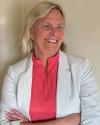PDF Version of Course Syllabus
Lectures for this course will be delivered on Wed and Fri, in-person in Benson 117, 11:30 am - 12:45 pm. Links to lecture slides will be provided prior to the lecture to facilitate note-taking. The lecture schedule, assignments, and due dates are, or will be, included in the syllabus and Course Outline PDF links above, as well as on the Homework page. Video Tutorials are linked below that provide tutorials for using the Protein Data Bank, and programs such as Chimera, which allows you to visualize a protein structure, rotate it, and zoom in on the active site, and create pretty graphics for your final report.
Professor
Professor Julie Kovacs
Office Hours: By Appointment
Contact by email: kovacs@uw.edu
Grader
TBA
Office Hours: By appointment, in person or Zoom
Contact by email: TBA
Course Description
This course will explore the interdisciplinary field of bioinorganic chemistry. Approximately half of all biological enzymes take advantage of the unique properties of transition metals to catalyze reactions critical to life. We will explore the metal ion (M+n) properties important for catalytic activity, how Nature selects the correct M+n for a given function, and how M+n catalytic sites can be spectroscopically probed. Spectroscopic methods to be discussed include Mössbauer, EPR, XAS, EXAFS, and resonance Raman. The thermodynamics and kinetics of proton-coupled electron transfer (PCET) will be discussed in the context of H-atom transfer (HAT) and biological substrate oxidation. Dinitrogen activation and reduction, as well as photosynthetic H2O oxidation will also be explored.
